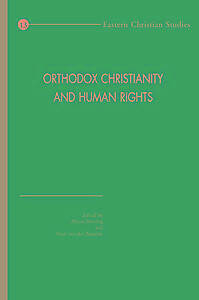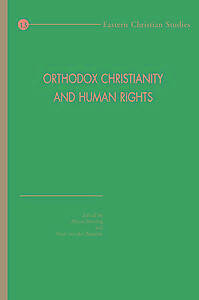
- Retrait gratuit dans votre magasin Club
- 7.000.000 titres dans notre catalogue
- Payer en toute sécurité
- Toujours un magasin près de chez vous
- Retrait gratuit dans votre magasin Club
- 7.000.0000 titres dans notre catalogue
- Payer en toute sécurité
- Toujours un magasin près de chez vous
Description
Orthodox theology and the Orthodox Churches had, and continue to have an ambiguous relationship towards the concept of Human Rights: principal approval often stands alongside serious criticism. This is especially true for those Orthodox Churches which have their centre in a country of the former Soviet sphere. On the one hand, especially since the fall of Communism they enjoy religious freedom that forms a central element within the framework of Human Rights. On the other hand, the transformation process of the 1990s and the challenge of pluralism and globalization have all confronted them with aspects of freedom that could not but affect their stance towards the Human Rights concept in general. This also means, that doubts and reservations related to this concept came to the fore again, which had yet existed already decades before. These reservations focused on such issues as Church and secular society, Church and state, furthermore on the understanding of central terms such as "freedom", "dignity", "rights" - central also for an Orthodox anthropology, that needs to be reconciled with the partly differing approaches behind the Human Rights concept.The chapters of this volume try and explore as much the philosophical and theological as the social, historical and practical aspects of this complex relationship. Based either on the discussion of differing theological concepts, or on empirical and concrete case studies respectively, they clearly show the tensions and fractures that do exist. On the other hand, in this way they also hint at possibilities to overcome these tensions, to continue a dialogue that already has begun, and to avoid the numerous misunderstandings between East and West which currently tend to form a hindrance to this dialogue at various points.
Spécifications
Parties prenantes
- Auteur(s) :
- Editeur:
Contenu
- Nombre de pages :
- 413
- Langue:
- Anglais
- Collection :
- Tome:
- n° 13
Caractéristiques
- EAN:
- 9789042925083
- Date de parution :
- 21-05-12
- Format:
- Livre broché
- Format numérique:
- Trade paperback (VS)
- Dimensions :
- 160 mm x 239 mm
- Poids :
- 680 g

Les avis
Nous publions uniquement les avis qui respectent les conditions requises. Consultez nos conditions pour les avis.






